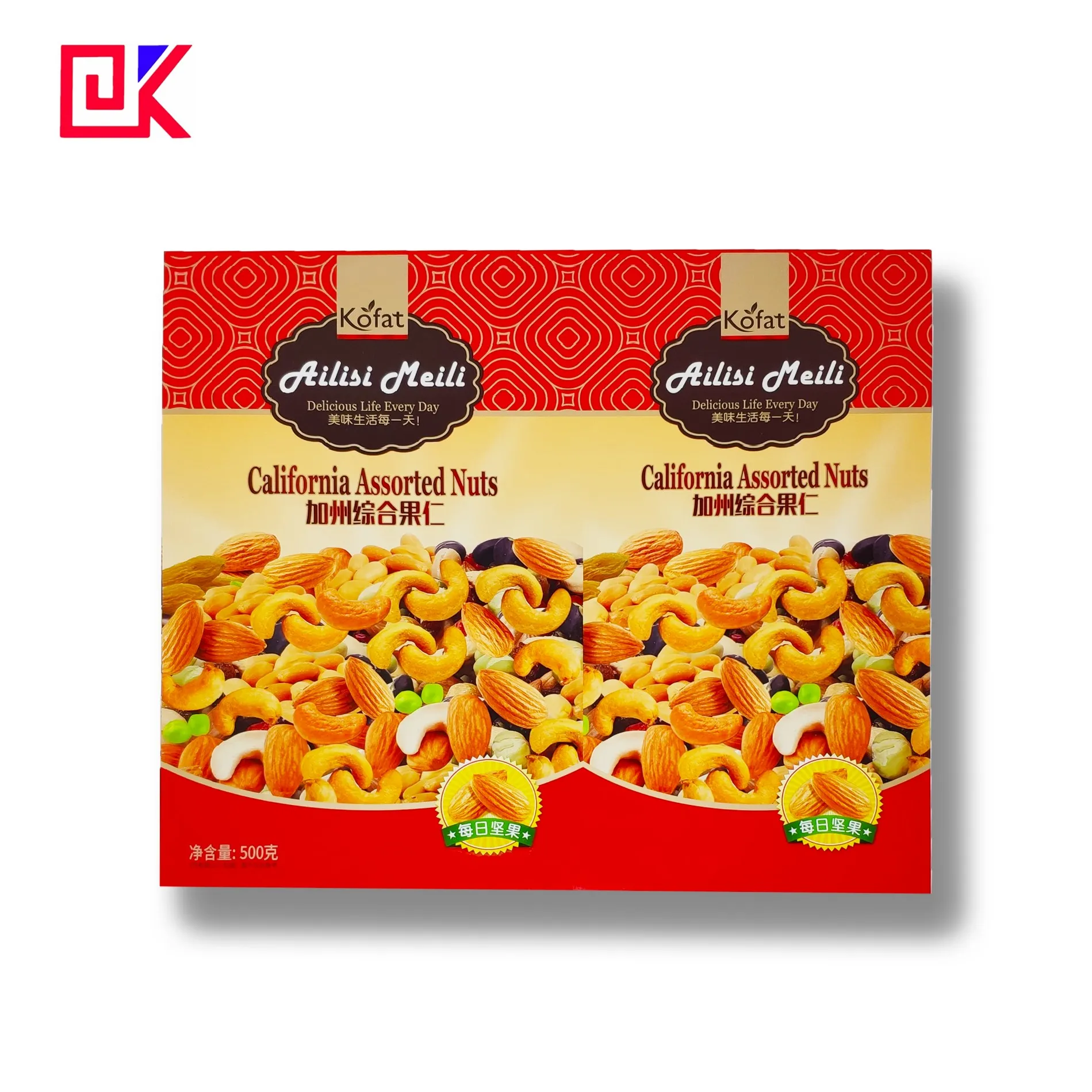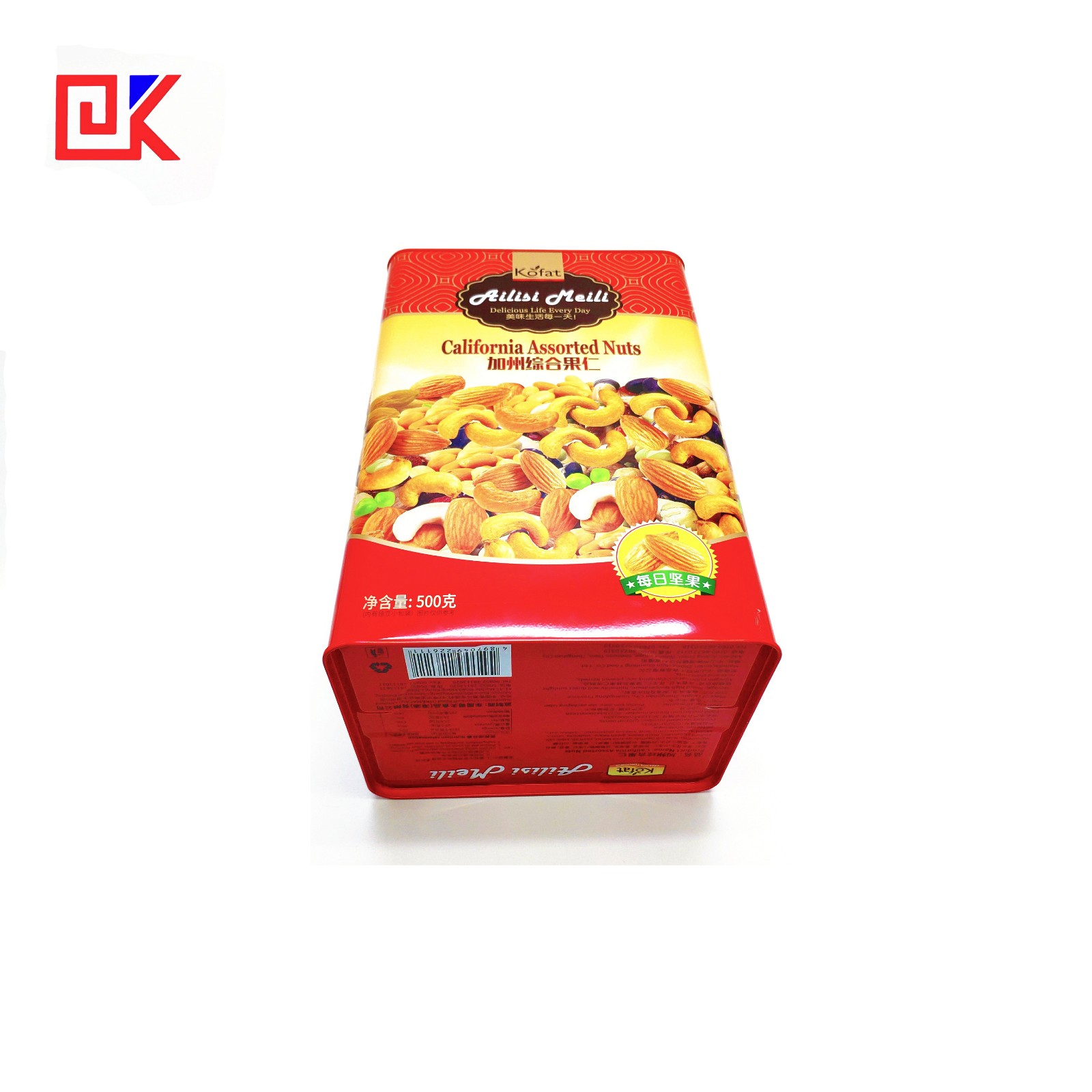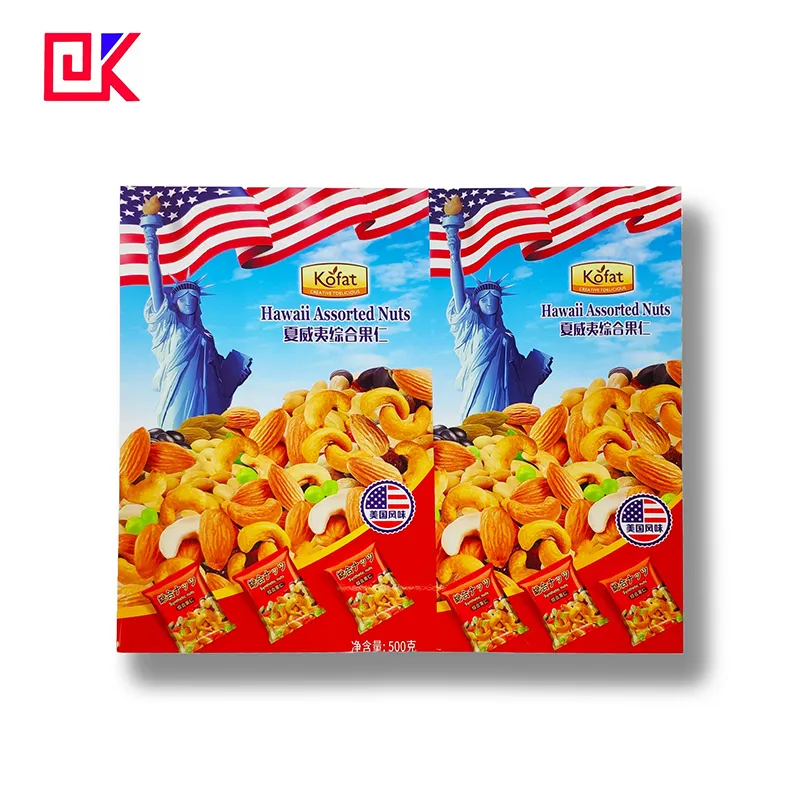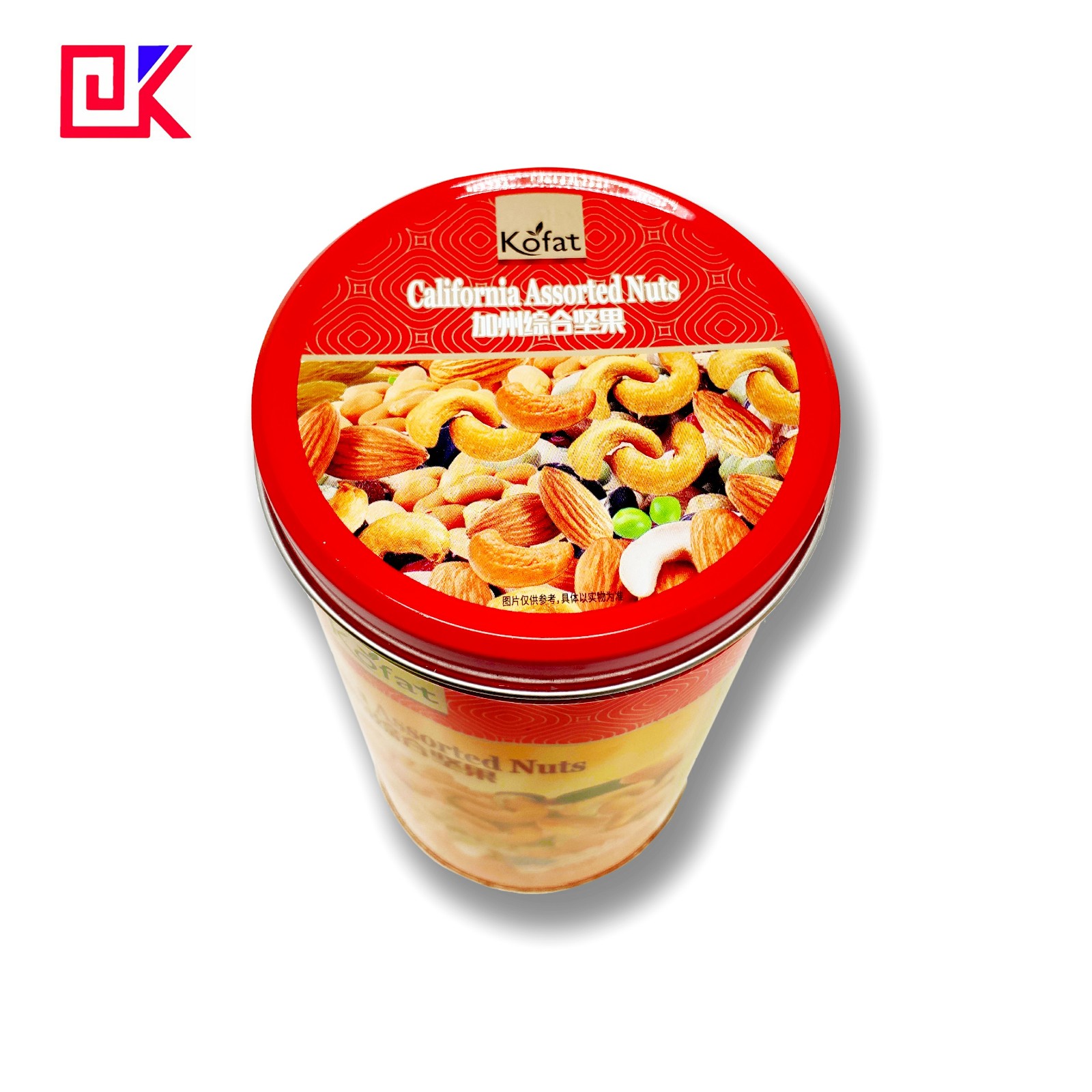Metal tin packaging cans are widely used in the food industry because of their excellent protection, sealing and environmental protection properties. Whether it is canned food, beverages, candy or other types of packaging, metal tin cans can be seen almost everywhere. As consumers' requirements for food safety and quality continue to increase, the food industry's requirements for packaging materials are becoming more stringent.
As a kind of food packaging material, the performance of metal tin packaging cans must meet a series of strict standards and requirements. So, what are the specific requirements of the food industry for metal tin packaging cans?

Why does the food industry choose metal tin packaging cans?
What are the advantages of metal tin packaging cans over other packaging forms?
The reason why the food industry widely chooses metal tin packaging cans is first because it has many advantages that other packaging materials cannot match. Metal tin packaging cans can effectively extend the shelf life of food and protect food from contamination by external environmental factors due to its excellent sealing and protection.
Here are some of the core advantages of metal tin packaging over other materials (such as glass bottles and plastic packaging):
● Good sealing performance: Metal tin packaging cans adopt a double sealing design to ensure that external factors such as air, light, and moisture are effectively isolated during storage to prevent food from spoiling and losing nutrients. Sealing performance is especially important for canned foods and liquid foods.
● Corrosion resistance: Metal tin packaging cans have natural corrosion resistance and can effectively prevent acidic and alkaline substances in food from contacting packaging, avoiding chemical reactions that affect food quality.
● Durability and damage resistance: Compared with glass and plastic packaging, metal tin cans have stronger pressure resistance and damage resistance, and are suitable for withstanding higher pressure and impact during logistics and transportation, reducing losses caused by packaging damage.
● Environmental protection: Metal tin cans have excellent recycling performance and are recyclable materials that meet the environmental protection standards that the current food industry is increasingly concerned about. Compared with other non-recyclable packaging materials, the recycling and reuse process of metal tin cans has more environmental value.

Specific requirements of the food industry for metal tin packaging cans
What protective functions do metal tin cans in food packaging need to have?
The primary task of food packaging is to ensure the safety and quality of food. Therefore, metal tin packaging cans must have the following protective functions to ensure that food is not contaminated during storage and transportation.
1. Prevent oxidation and light damage
Many foods (such as canned food, juice, dairy products, etc.) contain more sensitive ingredients, such as vitamins, fats, etc. These ingredients are easily damaged by oxygen and ultraviolet rays. Therefore, metal tin packaging cans need to have anti-oxidation and anti-ultraviolet functions. Metal tin cans generally have the characteristics of opacity and anti-oxidation, which can effectively prevent oxygen in the air from contacting food, thereby preventing food from deteriorating during storage.
2. Keep food fresh
Food preservation is another key factor in packaging design. Metal tin packaging cans can isolate external bacteria, dust and other pollutants through their superior sealing properties to ensure that food maintains its original freshness. In the process of canned food production, heated and sterilized metal tin cans can effectively maintain the nutrients of food and prevent bacterial regeneration.
3. Prevent air leakage and seepage
During the canning process, metal tin packaging cans need to ensure that there is no leakage to prevent the escape of liquid or gas in the package. The sealing of metal tin cans is an important guarantee for food safety. It not only prevents food leakage, but also effectively isolates the influence of outside air on food, maintaining the quality and taste of food.
What special requirements does the food industry have for the material of metal tin packaging cans?
In food packaging, the choice of material is crucial. The material requirements of metal tin packaging cans are mainly reflected in the following aspects:
1. Material safety
Food packaging cans must meet food safety standards. The main raw material of metal tin packaging cans is tin plate, and its inner and outer surfaces are usually tin-plated to increase corrosion resistance. The use of tin is very safe, and it does not react chemically with food, so it meets food safety requirements.
2. No harmful substances
Food packaging cans must comply with strict national and international regulations on food packaging materials to ensure that no harmful substances are dissolved during food storage. During the production process, metal tin packaging cans are usually coated and treated with non-toxic and harmless materials to avoid any adverse effects on food. Especially for highly acidic foods, such as tomato products and juices, the packaging material is required to prevent the metal from reacting with food ingredients and avoid the penetration of harmful substances such as lead and cadmium.
3. Strength and temperature resistance
Metal tin packaging cans must not only have high compressive strength, but also have good high temperature resistance. Many canned foods need to undergo high temperature treatment (such as sterilization, cooking, etc.) during processing. Metal tin packaging can maintain structural stability in such high temperature environments to prevent deformation or leakage caused by excessive temperature.

How does the printing quality of food packaging cans affect the requirements of the food industry?
The appearance of food packaging cans is not only related to the brand image, but also directly affects consumers' purchasing decisions. Therefore, the food industry has strict requirements for the printing quality of metal tin packaging cans. The printing process must not only meet the aesthetics, but also ensure that it does not affect food safety.
1. Non-toxic and environmentally friendly inks
In the printing process of metal tin packaging cans, non-toxic inks that meet the standards for food contact materials must be used. If the printing ink does not meet the food safety standards, it may penetrate into the food and affect the health of consumers. Therefore, the food industry requires that all printing materials undergo strict testing to ensure that no harmful substances are dissolved.
2. High-quality printing effects
The printing effects of metal tin packaging cans need to have high precision and high durability. The patterns, texts and colors in the printing process need to be clear and bright, and can withstand long-term transportation and storage environments without fading. Good printing quality can not only improve the brand image, but also increase the market competitiveness of the product.
Production and environmental protection requirements of the food industry for metal tin packaging cans
What are the requirements for the production process of metal tin packaging cans?
The food industry has extremely strict requirements for the production process of metal tin packaging cans. Every link involved in the production process, including material selection, tinning process, welding sealing, printing, etc., must meet the relevant food safety standards. The production process requires strict quality control to ensure that each metal tin packaging cans has undergone necessary quality inspections before leaving the factory.
1. Defect-free welding and sealing process
The welding and sealing process of metal tin packaging cans must ensure no air leakage, which is essential to maintaining food quality. The sealing of the welding parts directly affects the shelf life and safety of the food, so it is required that there are no defects in the welding process to avoid leakage or contamination of the product.
2. Strict quality inspection
During the production process, metal tin packaging cans must undergo strict quality inspections. All packaging cans shipped out of the factory must undergo non-destructive testing and pressure testing to ensure that their sealing and pressure resistance meet the standards. In addition, food contact materials need to be fully tested for safety to ensure that the packaging does not cause contamination to food.
What are the environmental protection requirements for metal tin packaging cans?
The food industry has increasingly higher requirements for environmental protection, and the advantages of metal tin packaging cans in environmental protection make them an important choice in the field of food packaging. Metal tin packaging cans usually use recyclable materials, and the recycled metal can be used again to produce new packaging cans, which helps to reduce resource waste and environmental pollution. In addition, the production process of metal tin cans is generally more energy-efficient and emits less carbon dioxide than the production process of plastic packaging.

Your Trusted Supplier of Metal Packaging in China
Looking to purchase premium metal packaging? Foshan Dekai Metal Packaging Co., Ltd. is your go-to factory for high-quality, customized tinplate and aerosol cans. With a robust production capacity and advanced automated equipment, we ensure a consistent supply of products that meet international standards. Our competitive prices, bulk discounts, and commitment to excellence make us the preferred supplier for businesses worldwide. From initial product design to final production, we offer a comprehensive service!

